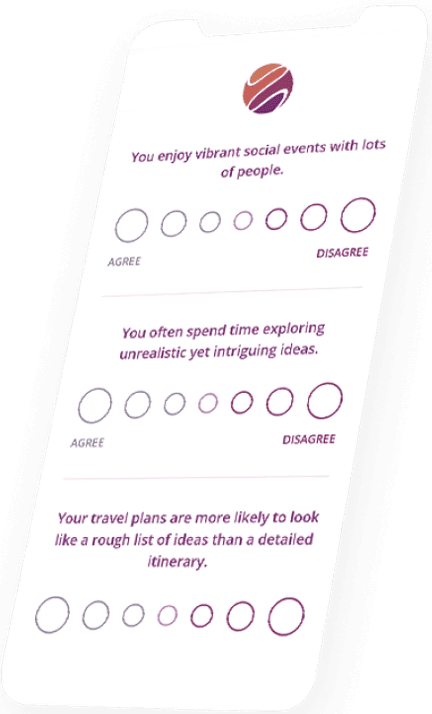

Adult
Depression

Therapy for All Types of Depression
There are many different types of depression, and while most people experience sadness from time to time, if feelings of emptiness, despair, or loss of pleasure in most things have taken hold of your life and won’t go away, you may have depression. Depression makes it difficult to function and enjoy life like you once did, and just getting through the day can be overwhelming. But, no matter how hopeless you feel, you can get better. Understanding the symptoms, causes, and treatment of depression is the first step to overcoming the problem.
Symptoms of depression include feelings of helplessness and hopelessness, negative thoughts, loss of interest in activities, change in appetite or weight change, sleep issues, anger issues, loss of energy, concentration problems, and physical aches and pains.
Signs of Depression
Depression can appear in many ways depending on the person and their situation. It can affect how you think, feel, and handle daily activities. Some signs and symptoms of depression include:
- Feelings of helplessness and hopelessness.
- Loss of interest in activities.
- Physical aches and pains.
- Change in appetite or weight.
- Irritability.
- Negative thoughts.
- Sleep issues.
- Loss of energy.
- Concentration issues.
Experiencing some or all of the symptoms and signs of depression every day for at least two weeks could mean you are suffering from depression. The frequency and severity of the symptoms and how long they last depend on an individual’s circumstances and drive to fight the symptoms. Recognizing the signs is key to finding help and treatment for depression.
Different Faces of Depression
Depression in Women
Symptoms of depression in women are twice as common as they are in men. This is due in part to hormonal factors, particularly when it comes to premenstrual syndrome (PMS), premenstrual dysphoric disorder (PMDD), postpartum depression, and perimenopausal depression. As a result, women are more likely than men to experience pronounced feelings of guilt, sleep excessively, overeat, and gain weight. Learn more.
Depression in Teens
While some depressed teens appear sad, others do not. Irritability — rather than depression — is frequently the predominant symptom in depressed adolescents. A depressed teenager may be hostile, grumpy, or easily lose his or her temper. Unexplained aches and pains are also common symptoms of depression in young people. If left untreated, teen depression can lead to problems at home and school, drug abuse, self-loathing, and even irreversible tragedy such as homicidal violence or suicide. But with help, teenage depression is highly treatable. Learn more.
Depression in Older Adults
The complex changes that many older adults face — such as bereavement, loss of independence, and health problems — can lead to depression, especially in those without a strong support system. However, depression is not a normal part of aging. Older adults tend to complain more about the physical rather than the emotional signs and symptoms of depression, and so the problem often goes unrecognized. Diagnosis and treatment are essential, given that depression in older adults is associated with poor health, a high mortality rate, and an increased risk of suicide. Learn more.
Postpartum Depression
Many new mothers suffer from some brief form of the “baby blues.” Postpartum depression, in contrast, is a longer-lasting and more severe depression, triggered in part by hormonal changes. Postpartum depression usually develops soon after delivery, but any depression within six months of childbirth may be postpartum depression. Learn more.

Types of Depression
Dysthymia
Dysthymia is a type of chronic “low-grade” depression. More days than not, you feel mildly or moderately depressed, although you may have brief periods of normal mood. The symptoms of dysthymia are not as intense as the symptoms of major depression, but they last a long time (at least two years). These chronic symptoms make it very difficult to live life to the fullest. Some people also experience major depressive episodes on top of dysthymia, a condition known as “double depression.” If you suffer from dysthymia, you may feel like you’ve always been depressed, or you may think that your continuous low mood is “just the way you are.” However, dysthymia is treatable, even if your symptoms have gone unrecognized or untreated for years
Major depression
Major depression is characterized by the inability to enjoy life and experience pleasure. Major depression is different from feeling sad because everything is experienced in a more negative light. Your feelings of depression interfere with daily life and spending time with family and friends. Some people experience a single depressive episode in their lifetime, but more commonly, major depression is a recurring disorder.
Causes of Depression
Depression is a complex mental illness. Many biological, psychological, and social factors can cause and increase the chance of depression. Common causes of depression include:
- Genetics: A family history of depression can make individuals more susceptible to developing this condition.
- Abuse: People who experience emotional, sexual, or physical abuse are vulnerable to depression later in life.
- Conflict: Individuals with a biological vulnerability to depression can become depressed because of personal conflicts or disputes with family members or friends.
- Severe illness: Depression can often be a side effect of other medical conditions.
- Medication: Certain medications that treat other conditions or diseases can have side effects resulting in depression.
- Death or a loss: Losing someone you loved can cause you to feel an overwhelming amount of sadness and grief. While grieving is natural, grief tends to decrease over time and occurs in waves, whereas depression is persistent and lasts more than six months after the loss.
Your lifestyle choices, relationships, and coping skills matter just as much — if not more so — than genetics. Depression can lead to choices that isolate people and worsen their symptoms. If you are experiencing depression symptoms, finding treatment can help you learn how to cope and manage your bad days. A psychologist for depression ensures you receive therapy that meets your unique needs.
Depression Treatment in Greenwich, CT and NYC
At Greenwich Psychology Group, our clinicians have specialized training and depth of experience to evaluate your symptoms and develop an effective treatment plan for you. There is no “one-size-fits-all” therapy for depression. What works for one person might not work for another. Our expert clinicians will customize your treatment for your specific needs. Therapies for depression include cognitive-behavioral therapy (CBT), interpersonal therapy (IPT), psychodynamic therapy, and mindfulness.
Our depression treatment programs help individuals find effective coping mechanisms to manage their depression and work toward living a fuller life. To learn more about each treatment, click here.
Cognitive-Behavioral Therapy for Depression (CBT)
Cognitive-Behavioral Therapy for depression helps people restructure negative thought patterns by interpreting their environment and interactions with others more positively and realistically. It also helps people recognize things that may be contributing to their depression and help change behaviors that may be making their depression worse. We work with you to help you understand your thought patterns and behavioral habits associated with depression. Sessions will focus on how your thoughts, activities, and interactions with others affect your mood. The goal will be to help you identify and change dysfunctional patterns to improve your quality of life.
Having a CBT and solution focused treatment plan for depression can help you pinpoint the causes of your depression while learning practical coping and management skills. Your dedicated clinician will ensure behavioral therapy for depression is the best choice for you. At Greenwich Psychology Group, you can receive CBT therapy for depression in Greenwich, Connecticut, and Manhattan, New York.
Interpersonal Therapy for Depression (IPT)
Interpersonal psychotherapy (IPT) for depression helps identify issues and problems in interpersonal relationships and address and improve them. IPT helps people understand and work through troubled relationships that may cause their depression or make their depression worse.
Psychodynamic Therapy for Depression
Psychodynamic therapy for depression focuses on the root of problems, in addition to addressing the symptoms. It can help an individual achieve greater insight and self-awareness about his or her feelings, motivations, and relationship patterns, leading to the relief of symptoms. In addition, psychodynamic therapy aims to help individuals develop internal psychological resources and a greater capacity for dealing with issues that have caused prior emotional suffering. To learn more about psychodynamic therapy, click here.
Am I Depressed? Quiz
You can start managing your depression symptoms by taking an online depression quiz. While it doesn't provide a formal diagnosis, it helps determine the possible extent of depression you are experiencing. At Greenwich Psychology Group, our symptom checker helps clients track their symptoms of depression or anxiety. Taking the assessment doesn't provide a formal diagnosis, but it can help you determine what next steps you may need to take. The evaluation uses a series of questions to review the feelings and symptoms you've experienced over the past two weeks. The results will help you distinguish if professional help is the best next step.
Our Team
Dr. Krachenfels
Licensed Clinical Social Worker
Krachenfels is a licensed clinician with over 3 decades of clinical experience. His training includes a Master’s degree in Social Work from Stony Brook University with a specialization in substance abuse treatment and a Doctorate in Clinical Psychology from the Derner Institute of Advanced Psychological Studies at Adelphi University.

Medina Cecunjanin
Senior Therapist
Medina Cecunjanin is a Licensed Therapist with a wide range of clinical experience. She graduated with honors from Smith College, one of the country’s top programs. Medina has extensive experience working with children, college-age and their families who are struggling with depression, anxiety, ADHD, learning disabilities, social anxiety, and other behaviorally-based issues.

Request a Consultation Today
Receiving treatment for depression can help you reclaim your life. At Greenwich Psychology Group, we employ expert specially trained clinicians and psychologists to help individuals manage their depression symptoms. Our clinicians have education and training from the top Ivy League schools and best hospitals in the United States.
Whether you are a busy professional or parent, we provide services to fit into your schedule. We offer in-person and virtual therapy sessions so patients can receive treatment at their convenience.
When you need depression treatment in Manhattan or Greenwich, consider Greenwich Psychology Group. We can help you create a life you love. Begin the journey to recovering control over your life when you request a consultation with us today. We’ll ensure you work with a supportive clinician who will provide effective depression treatment for you.
Have questions? Ask our experts.Take the GPG Symptom Checker
At Greenwich Psychology Group, our symptom checker helps clients track their symptoms of depression or anxiety. Taking the assessment doesn't provide a formal diagnosis, but it can help you determine what next steps you may need to take. The evaluation uses a series of questions to review the feelings and symptoms you've experienced over the past two weeks. The results will help you distinguish if professional help is the best next step.
BeginLatest Topics
Blog Articles
Most recent publications, interviews, blogs, and tips.



Book a Consultation
Hours of Operation
Mon – Sat: 8am to 8pm
Office Address
15 Valley Drive 1st Floor
Greenwich, CT 06831






